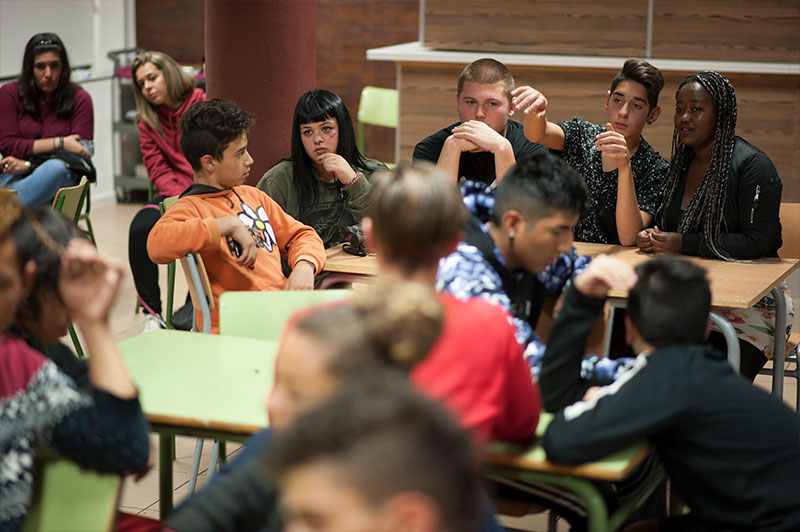Como rasgo identificativo de nuestra labor educativa,
pretendemos construir una casa abierta

Por este motivo invitamos a nuestros/as amigos/as y hacemos un hueco, siempre que es posible, a quien lo necesita. Intentamos no enjuiciar y no tener prejuicios de admisión, buscando, eso sí, responder a los/las chicos/as más desfavorecidos/as.
Nuestro estilo educativo consiste en sacar de cada persona lo mejor que lleve dentro, así, los/las educadores/as pretenden ampliar lo que cada cual considera positivo de sí mismo/a. Se buscan soluciones a los problemas en las asambleas diarias en las que participamos todos/as.
La letra con sangre no entra, por eso cambiamos castigos por razones y puntos de vista.
Quien bien te quiere no tiene por qué hacerte llorar, sino más bien sonreír y cuando no hay alegría, nos preguntamos por qué; cuando la hay, la disfrutamos.

